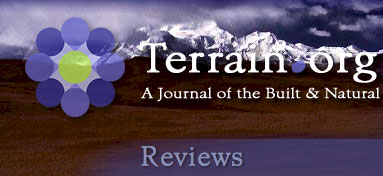
 |
|
|
Praise Must Outshine the Ordinary Simmons Buntin reviews Brightwood: Poems and The Hollow Log Lounge: Poems by
R.T. Smith
So I challenged my teacher, leaving class that afternoon on a mission. That evening, I sifted through what seemed hundreds of song lyrics—those printed on album sleeves—and listened to dozens of songs I was sure, from memory, were as good as poetry. And therefore were poetry. But when it got right down to it—despite how beautiful I find the lyrics in U2’s song “Running to Stand Still” from the album The Joshua Tree to be, I found that Smith was correct. Music is not poetry. So is the adverse also true? Is poetry not music? Flex and tap, the scuffed toe drags, R.T. Smith’s poem “Flat-Footing, Summer Evening, Rockbridge County, VA” would have us believe otherwise. Indeed, the verse appearing in Smith’s two newest collections—The Hollow Log Lounge, published by University of Illinois Press in 2003, and Brightwood, from Louisiana State University Press in 2004, in which the poem above appears—set meter, pitch, tempo, and beat. They are music; and more clearly perhaps because their subject is music so often.
Not even the fiddler can play this nimble. True to life, however, Smith’s poems give evidence that there is more to our existence than music; that life can be far meaner, as in Brightwood’s “Hazard,” about a man recently divorced who discovers halfway through bringing down a sweetgum by axe “with every stroke, and soon I knew I was mistaken.” At the end of his task, at the end of the winter day, he concludes: The world, or just the road to town, seemed safer then, At the Hollow Log Lounge in Opelika, Alabama, life is just as mean—more visceral—and each character has a unique story to tell, each revealing a simple truth: while there may be more to life than music, it’s still the stuff that elevates us, whether it’s Tanya Tucker on the jukebox or a has-been country star getting bounced out of a bar, as in “A Putative Country Star Rebukes His Exit Escort.” Music plays through the poems as it plays through our memories, often in strange and always in revealing ways. Take the Lounge’s silent Cadmon Dabney after a poker night, where “Wild card blind, double-down, or bluff, / my heart was never in the game.” Slipping out to the barn, settling into autoharp tunes, it suddenly becomes dark: I saw my breath take on a shape. It was weird and rising, a man so bright While we may continue to search for poetry in music, there’s no need to search for music in poetry. It’s all here, as it always has been, in the sweet, Southern voice that Smith seeds in his characters from the first line of each well-crafted poem.
|
|
|||||||||||||||||||||||||||||||||||||||||||||||||||||||||||||||